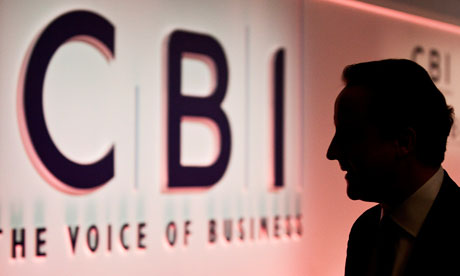THE CBI performed an embarrassing U-turn last night when it applied to reverse its official registration as a supporter of the Better Together campaign.
John Cridland, director-general at the business lobby organisation, said the controversial application “should not have been made”, as it had not been approved by the CBI board and was not signed by an authorised official.
He said registering with the Electoral Commission had been “an honest mistake” and revealed a junior member of staff in London had filed forms without informing senior figures.
The move comes just over a week after it was revealed the body had registered as a “non-party participant” with the commission to formally back a No vote in September’s referendum on Scottish independence. After it was revealed, a CBI spokesman said it had done so “in accordance with the law” in order to allow the organisation to host events, such as dinners, with pro-Union speakers. But by registering, the CBI would be allowed to spend up to £150,000 in campaigning for a No vote.
The decision sparked a major backlash that saw 18 bodies – including several Scottish universities, Scottish Enterprise, the Law Society of Scotland, the BBC and STV – either resign or suspend their membership of the CBI.
Mr Cridland last night admitted registering with the Electoral Commission had “triggered something none of us expected”. He claimed he was only told about the registration last weekend and that, after taking legal advice, he was told the registration was “inappropriate”.
But the U-turn led to the CBI coming under fire last night from supporters of the Yes campaign who said the group had lost credibility.
Tony Banks, leader of the pro-independence group Business for Scotland, said: “The CBI’s demise has descended from farce into shambles.”
The CBI yesterday announced that the organisation was now seeking to have its registration declared null and void – though it was not certain that it would be able to do so.
The Electoral Commission said in a statement: “We have received representations from the CBI to de-register. We are currently considering whether this is possible under the relevant legislation.”
London-based Mr Cridland told The Scotsman he instigated talks with leading City law firm Linklaters and Martin Moore QC of Erskine Chambers after he had found out about the CBI being registered.
He said the decision to register had been “dealt with as a compliance issue, but an honest mistake was made because it was dealt with at officer level”.
He admitted there had been a failing of corporate governance over the registration, adding: “We did not get it right and we are now going to put it right.”
Mr Cridland told how, prior to registration, there had been discussions between the Electoral Commission and officers at the CBI’s London headquarters, saying: “A view was taken at an operational compliance level that the right thing to do was to register, but clearly it was a much bigger issue.
“I wasn’t aware registration had taken place until Good Friday – this had not been approved by the CBI board, we hadn’t taken legal advice. It was an honest mistake. We’re seeking to de-register so the CBI can go back to its normal business – jobs, growth and investment in Scotland.”
Mr Cridland added: “It’s vital that the CBI does the right thing and we need to restore the CBI’s impartiality.
“As soon as I became aware of the situation, I commissioned legal advice and a review that has come to the conclusion we should seek to de-register our position.”
Mr Cridland was adamant the CBI was “politically independent and impartial”. He said:
“Although the decision to register with the Electoral Commission was taken in good faith, in order to carry out normal activities during the referendum period, it has inadvertently given the impression that the CBI is a political entity – we are not and never will be.”
The director-general added it had “not been the easiest of weeks for the CBI”, saying: “The biggest issue for the CBI this week has been the questioning of our impartiality.
“The CBI has been doing its job for nearly 50 years in representing business – we’re an organisation with a Royal Charter. We’re not an organisation that campaigns to influence people’s votes and it’s really important we maintain our political independence.”
He continued: “We have always said that the referendum is a decision for the Scottish people and we’re not telling people how to vote.
“However, we do have a legitimate role as the UK’s biggest business group in raising important questions on the big issues affecting businesses.”
Mr Cridland said he regretted the fact that a number of organisations had withdrawn from the CBI as a result of the registration.
A spokesman for Better Together said: “The Electoral Commission must urgently provide clear advice to organisations on whether or not they should register.”
Mr Banks accused the CBI of creating the biggest crisis in the organisation’s history and said it was “a public laughing stock”.
He said: “This means, on both sides of the Border, no member of the CBI can now credibly remain within the organisation if they wish to be deemed as neutral in the Scottish referendum.
“Our understanding is that the CBI cannot nullify its Electoral Commission registration, having been identified as a campaigning organisation.”
The CBI claims to speak on behalf of 190,000 businesses in the UK, of which it says 1,200 are registered in Scotland.
CBI U-turn on anti-independence stance






















Laissez un commentaire Votre adresse courriel ne sera pas publiée.
Veuillez vous connecter afin de laisser un commentaire.
Aucun commentaire trouvé